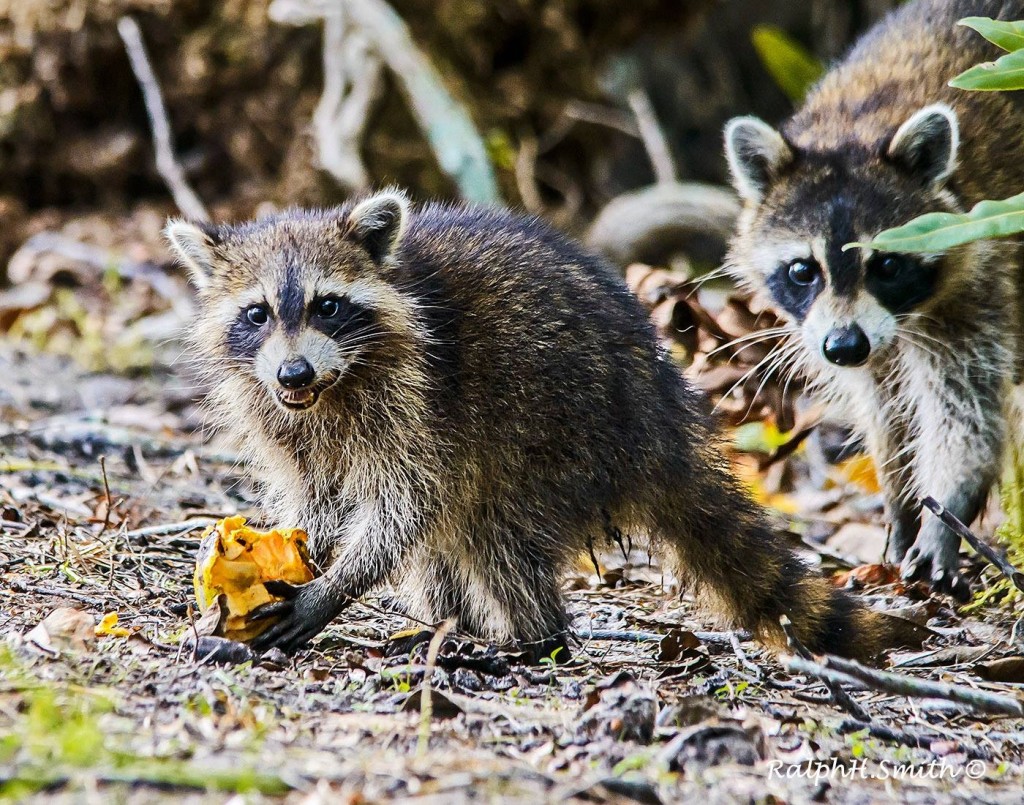By Robbie Ruderman, Wildlife Coexistence Director, Animal Hero Kids*
The trapping of raccoons is ineffective and inhumane. Despite what trappers allege, the majority of trapped raccoons will not be relocated but rather killed, often in barbaric ways. Trapping makes orphans out of countless baby raccoons whose chances of survival are virtually eliminated without their mothers. Raccoons are also territorial; as a result, when one raccoon is trapped, another one will quickly move in. Therefore, it is pointless to trap raccoons. Trapping induces a never-ending and very costly cycle with dire consequences for the animals.
Fortunately, there is an intelligent, compassionate, and proven alternative to trapping called “humane eviction,” which utilizes several highly effective techniques, often in tandem, to powerfully persuade a raccoon to leave your property on his or her own free will. Following are the most common scenarios that would attract a raccoon onto your property, along with the corresponding humane eviction procedure.

1. A resident is deliberately feeding a raccoon:
If you or your neighbor is feeding raccoons, please stop. Feeding wildlife may seem harmless and even helpful to the animals, but it is actually extremely detrimental to their well-being. By feeding raccoons, you are conditioning these animals to lose their natural fear of humans to a point where they feel comfortable approaching humans for food. This puts the raccoon at high risk of being labeled a “nuisance” or “threat” or even “rabid” and then being trapped and killed for that “unusual” behavior. Feeding raccoons is also a misdemeanor violation.
2. A raccoon is getting into your garbage:
Do not put garbage bags outside for pick-up. Garbage bags must be placed inside a garbage container. Put the garbage container outside on the morning of collection day, not the night before. Strap down the lid with bungee cords.
3. A raccoon is eating dog or cat food left outdoors:
Remove dog or cat food immediately after feedings. Dogs and cats have an internal clock, so if you feed them at the exact same time(s) every day, the dog or cat will be ready and waiting (assuming he or she is hungry). As soon as the dog or cat has finished eating, remove the food bowl, preferably within 15 to 30 minutes. If you see a raccoon approaching the dog or cat food, “haze” (scare) the raccoon away by yelling, making loud noises (e.g., banging pots together), chasing him or her away, and/or spraying him or her with a garden hose or water gun.
4. A raccoon is eating out of your birdfeeder:
Squirrel-proof the birdfeeder and relocate it to a place that is inaccessible to the raccoon, or simply remove the birdfeeder.
5. A raccoon is frequenting your property or has decided to den in your attic or under your foundation, pool, deck, or elsewhere:
a. “Haze” (scare) the raccoon away by yelling, making loud noises (e.g., banging pots together), chasing him or her away, and/or spraying him or her with a garden hose or water gun.
b. Leave yard lights on (at night) and/or place a light inside the “den” (all day and night).
c. Place a clock radio outside and put it on talk radio. Choose a station that will provide inflammatory commentary in direct opposition to raccoon’s political leanings.
d. Soak rags in cider vinegar and place in empty coffee tins (punch holes in covers). Place tins at raccoon’s most frequented spots or scatter the tins throughout your property.
e. It is essential to evict a mother and her babies from the “den” before proceeding with “humane exclusion” procedures, which essentially involve sealing all entry points.
6. A raccoon is pooping in your pool:
It is relatively common for raccoons to poop in pools. A pool is essentially a giant bidet for raccoons and you can’t really blame them for wanting a clean tushy. If this is the case, buy the “Gator Guard by Bird-X,” a realistic, life-sized floating alligator head that users claim deters 9 out of 10 raccoons from pooping in your pool (or koi pond). You can buy it online for under $50. If a raccoon is pooping in your pool, it is worth every dollar.
*Feel free to contact me with wildlife questions or emergencies at 727-742-3601 or RescueEducation@AnimalHeroKids.org. And please visit AnimalHeroKids.org for more information on our educational programs.